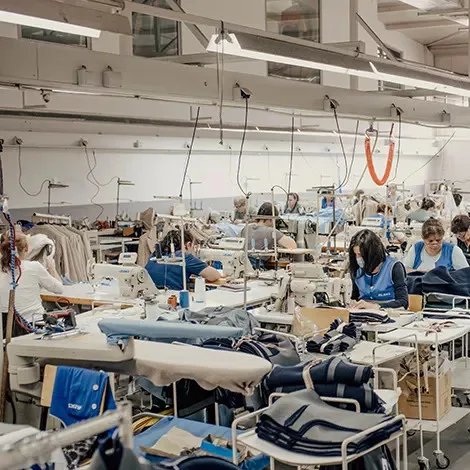
In recent decades North Macedonia has been affected by a very strong emigration trend and today more and more companies struggle to find staff. Among the solutions proposed, there is that of encouraging the arrival of workers from non-European countries
Employers in North Macedonia are facing an increasing shortage of available workers, since Macedonians have been emigrating in mass abroad looking for better wages. The lack of workers has become a serious problem in North Macedonia since the start of the Covid-19 pandemic. Experts say that out of a 1.8 million population there are currently 115,000 unemployed or almost 7% people of working age. Many, however, have only primary school certificates or did not finish high school.
Some representatives of industries such as construction, textile, manufacturing, catering, and hospitality are already openly talking about the necessity of attracting workers from other countries. This “recipe”, which is already applied in developed countries, has yet to prove sustainable for developing countries like North Macedonia, with a 300 Euros minimum wage and a 500 Euros average wage.
Representatives of the government say that it is necessary to think about importing workers from other countries, but also about investing in retraining, training, and qualification for the unemployed and unqualified Macedonian workers. North Macedonia lacks 10,000 workers per year and that importing labour and retraining the unemployed must be the way to solve the problem if companies want to remain competitive in the changing industrial-technological envoironment.
Other experts, however, have warned that importing labour from non-European countries can be a short-term solution, but would be difficult. Bringing workforce from abroad initially costs 2.000 Euros per worker, due to accommodation, food… To bring a person from Bangladesh with the plane ticket, all necessary permits, and medical examinations, will cost you more than 1,500 Euros. You have to provide accommodation, transportation, some kind of integration into the social and healthcare system of North Macedonia. But importing labourforce is not regulated in North Macedonia. Also, the import of labour force could be an ephemeral solution to the problem, because many workers could see North Macedonia only as a transit country to reach the richer European Union countries. For example, in the recent past Albania attracted people from Egypt, but most of them left for the EU which then sanctioned the country.
In order to change things, trade unions and labour rights organisations are calling for higher wages and better working conditions. Talking about the textile processing industry, for example, workers can be found if they are paid more than the minimum wage, if they are paid above the average they will certainly be found. Experts say that most vacant jobs do not require major professional qualifications, and with a small retraining a large percentage of the unemployed would quickly fit into the production process of domestic companies. Still, proponents of importing labour force argue that new, cheaper workers could come, for example, from Bangladesh, where the minimum wage is 240 Euros, compared to the 300 Euros in North Macedonia. These workers could be attracted by the better infrastructure and higher social protection granted in North Macedonia.
Another worrying trend is that of aging population and mass emigration. Many Macedonians, dissatisfied with working conditions at home, emigrate and encourage their loved ones to do the same. Not only young people, but also people at the end of their working years keep moving abroad.
The “Open Balkans” agreement, which gives workers from Macedonia, Serbia, and Albania the opportunity to work without restrictions in all three countries, is found to be of no help to import workers. Instead, there is a danger that Macedonian citizens could use the agreement to move to Serbia or Albania. Since there is a labour shortage also in other countries of the Western Balkans, and that workers from the immediate surroundings would rather go directly to more developed countries, such as Germany which facilitates the reception of new workers, even with lower qualifications.
The solution to the shortage of workers must be sought in the domestic labour force. Employers will be forced to turn to domestic labour supply, raise wages, and offer better working conditions and benefits. In Serbia and Croatia, some of the companies offer better conditions for attracting workers from the less developed areas of the country, such as accommodation and food.


